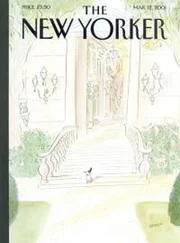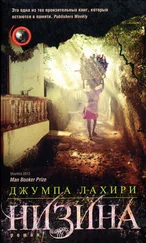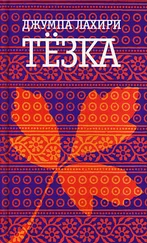Every time the phone rings I pick up, thinking maybe this time he really is trying to call me. But he’s not calling me, he doesn’t hear me saying hello, he’s still not aware of our ongoing, inadvertent contact.
Who is he talking to? Where is he? I have no idea. He’s at work, at a bar, on the platform of the metro, I suppose. It’s just that every time I get one of his calls I feel betrayed. Our communication, of which he’s ignorant, nettles me. It makes me feel particularly alone.
Finally, in the late afternoon, he calls: it’s really him. I pick up and hear the passion in his voice.
“Hi, darling, how are you?”
“Ciao, how was your day?”
“A drag. I was at work all day, I even skipped lunch, it was one thing after another. How about you?”
“My day was also a bit of a drag.”
“So what about dinner tonight?”
“Tonight I think I’ll pass.”
“Why?”
“I’ve had a headache for hours,” I tell him, then hang up and step out, ravenous, to eat dinner on my own. There’s no bite to the air; it was colder inside than out.
In the Shade
Yesterday we turned our clocks back an hour, and today it’s already dark as I cross the bridge that takes me home. So I’m thinking back to a bright afternoon on a tiny square of burning sand. All the beach umbrellas were taken, it had felt like the whole town was in the water.
I’d gone there for a wedding. The following day, instead of returning home I stayed on, I wanted a day at the beach. I craved a swim even though I didn’t have a towel, or sunscreen, even though, to be honest, the beach wasn’t that nice. It was narrow, like certain rooms, flanked by two rows of big black rocks full of sharp edges. The water was choppy and the white foam felt blinding. There was a mother standing in front of me. She was short, sturdy, with dark hair. Her children surrounded her, she had at least four. I still remember that she carried a naked baby in her arms. The daughter was pretty, like her mother, but life had yet to wear her out. I didn’t see the father, but the mother was a steady pillar in the midst of that roiling force. They were all at ease in the furious sea, they frolicked in it, even the little ones were fearless. They leaped through the waves at just the right moments, the same waves that kept knocking me down. I never managed to get past the point they broke in order to actually enter the water and swim.
I returned to the shore, which was full of exposed, sluggish bodies, where I managed to find a spot between one lounge chair and another. The sun was so strong I thought I might die. My only objective was to block its rays, or to move into the shade, any patch of shade, as if it were one of those huge rocks to grab onto in the middle of the sea. Bit by bit I edged toward another woman, who slept, unaware of my suffering. Her body exuded an enviable harmony with her surroundings. Her head was turned to one side, her eyes were closed, and the red strip of her bikini top was untied. I lacked her serenity, but her presence afforded me some relief, and feeling slightly guilty, I dozed off in her shadow.
When I woke up the lounge chair was empty, the woman was gone. But the gray light that pervaded the sky after sunset made me melancholy. That diffuse shade, exclusive to no one, defeated me, it provided no relief. Come to think of it, there’s always some savage element at the beach, either to tolerate or to overcome: an element we crave and cower from at the same time.
I’ve always felt in someone’s shadow, even though I don’t have to compare myself to brothers who are smarter, or to sisters who are prettier.
There’s no escape from the shadows that mount, inexorably, in this darkening season. Nor can we escape the shadows our families cast. That said, there are times I miss the pleasant shade a companion might provide.
In Winter
At the end of the year, when all the schoolchildren in the city are on vacation, I accept an invitation to accompany my friends and their children—the son and daughter—on a visit to a castle. He drives. He’s my friend from the bridge, the one quarreling on the street, the one from the supermarket. His wife should have been with us, but she’s come down with a bad cold and has decided, at the last minute, to stay home. So I stand in for her today.
On our way back to the city we stop to stretch our legs in a sleepy little town. He parks in front of a precipice. We get out of the car and walk up the narrow road, seeking glimpses of sunlight. A woman sweeps the piazza—two crisscrossed flags and a small fountain—with a broom. She goes about it as if that public space were her own living room.
We continue walking. The children run on ahead. We linger under a grand house that looms over the countryside. At the base of a statue, we read the name of the noble family that once owned it. It’s a stone facade, but the colors are a mix of pale pink, yellow, and orange—warm shades that form the background for the slanting shadows cast by lampposts. The town, practically abandoned this afternoon, starts to drown in a piercing light.
We’re doubled over by a sharp wind and our eyes are filled with tears. We see the church at the top of the hill, and an ancient olive tree decorated with shiny red balls, in place of a Christmas tree. The higher we climb, the more we feel the wind and the cold. We’re enfolded by the wide-open space, enclosed by all that emptiness.
We pause at one of the side streets, curious to see where it leads. It’s actually a dead end, a sort of courtyard composed of four buildings, or maybe it’s just one building with three or four separate entrances. It’s a sheltered space, so dark that it’s an effort to adjust our eyes. But bit by bit we make out a staircase with a railing that leads to a brick archway, and a few doors, closed and battered. The winter sunset seeps in through some cracks. It’s incredible, it feels as if we’re standing in a grotto, with light that darts through it like fish.
As soon as I step into that secluded niche I dream of inhabiting it, of withdrawing there, away from everything. He’s standing beside me, we admire it together, and before heading out he turns to look at me. “Stunning,” he says. The word burns inside me but I can’t tell if he’s talking about me or the place we’re in. He’s enigmatic that way, and in any case, in spite of today’s jaunt, in theory romantic, I don’t feel many sparks between us.
His daughter wants a hot chocolate, so we walk back to the town, hoping to find a bar that’s open. The woman with the broom says, “Ask down that way,” and we proceed to a barbershop, which, to our surprise, has numerous clients inside. “At the top of that road, in about three hundred meters,” a man tells us, reclining in his chair, his face covered with soap.
We walk to the top of the road but alas, the bar is closed. The large awning, which still needs to be taken down for the season, whips wildly in the wind.
We go back to the car parked in front of the precipice. And as he turns on the engine and shifts into reverse I feel a panic starting to rise, not trusting that low cement barrier between us and the abyss. I don’t trust that the car will move backward, all I feel is the steep downward slope, pointing toward danger. But we go up, the car whines as it pulls out in reverse gear and we move, against the force of gravity, away from the little town with its spotlessly clean piazza, and the hushed grotto that enchanted me, and the man who will have dinner tonight, freshly shaved. No hot chocolate, just the depleting artificial heat inside the car. We go home without talking, though the little girl hums strange songs to herself all the while.
At the Stationer’s
My beloved stationery store is in the heart of the city, in a beautiful old building built on the corner of two busy streets. I make a trip at the end of every year to buy my agenda, which happens to be my favorite purchase, and which has turned into a sort of rite, but apart from that I like to stop by nearly every week to pick up, who knows, a transparent folder, or sticky page markers, or a new eraser that has yet to wipe anything out. I poke through the colored notebooks and try out the inks of various pens on a piece of paper trampled by countless unknown signatures and urgent, agitated scribbles. I ask for spare paper for my printer at home and boxes to organize my life’s paper trail: letters, bills, jottings. Even when I don’t need anything in particular I stop in front of the window to admire the display, which always appears so festive, decked with backpacks, scissors, tacks, glue, Scotch tape, and piles of little notebooks, with and without lines on their pages. I’d like to fill them all up, even that unwelcoming accounts ledger. Even though I can’t draw, I’d like one of those sketchbooks, hand bound, with thick cream-colored paper.
Читать дальше
![Джумпа Лахири Whereabouts [calibre] обложка книги](/books/384312/dzhumpa-lahiri-whereabouts-calibre-cover.webp)




![Хелен Виннер - 33 несчастья Алисы [calibre]](/books/384302/helen-vinner-33-neschastya-alisy-calibre-thumb.webp)
![Даниэла Стил - Finding Ashley [calibre]](/books/384308/daniela-stil-finding-ashley-calibre-thumb.webp)
![Аманда Горман - The Hill We Climb [calibre]](/books/384311/amanda-gorman-the-hill-we-climb-calibre-thumb.webp)
![Дэвид Балдаччи - A Gambling Man [calibre]](/books/384314/devid-baldachchi-a-gambling-man-calibre-thumb.webp)
![Джон Ирвинг - Viename asmenyje [calibre]](/books/384315/dzhon-irving-viename-asmenyje-calibre-thumb.webp)
![Джон Ирвинг - Paskutinė naktis Tvisted Riveryje [calibre]](/books/384317/dzhon-irving-paskutine-naktis-tvisted-riveryje-cal-thumb.webp)
![Джон Ирвинг - Pasaulis pagal Garpą [calibre]](/books/384318/dzhon-irving-pasaulis-pagal-garpĄ-calibre-thumb.webp)
![Джон Ирвинг - Našlė vieneriems metams [calibre]](/books/384320/dzhon-irving-naŠle-vieneriems-metams-calibre-thumb.webp)